News
‘Tinubu’s cabal has Hijacked NNPCL’, Atiku raises Alarm
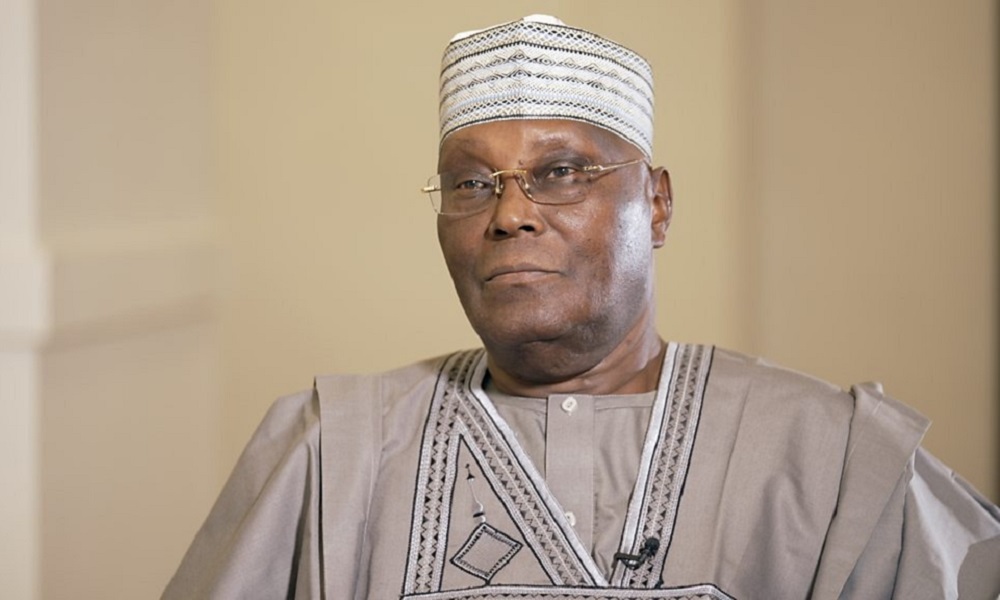
Former Vice-President Atiku Abubakar has said the Nigerian National Petroleum Company Limited (NNPCL) has been hijacked by a cabal around President Bola Tinubu.
The opposition leader said future of the country has been “effectively mortgaged to President Bola Tinubu, his family, and associates”, saying that “even after Tinubu leaves office, it will be nearly impossible to break these shackles.”
Atiku in a statement signed by Paul Ibe, his Media Adviser, said, “Just as Alpha Beta, Primero, and others act as Tinubu’s proxies in Lagos, managing critical sectors and generating revenue for him and his family, he has begun to replicate this at the federal level.”
He also expressed surprise at the operations of the NNPC and how the government-owned oil company had put its retail arm under the control of OVH, a company in which Oando, led by Wale Tinubu, owns 49%.
Atiku regretted that his “intention to privatize the NNPC and increase its transparency has been overshadowed by what he describes as the criminal hijack of the NNPC by corporate cabals around the current president.”
He narrated that “In October 2022, just five months before the elections, the NNPC Retail controversially announced it had acquired OVH and all its filling stations. NNPCL already had about 550 filling stations across the country but claimed it was enhancing its capacity by acquiring OVH, which had only 94 stations and 100 others leased.
“The NNPC did not disclose the purchase price of OVH or the terms of the acquisition. A Freedom of Information request by an online medium was also rejected by the NNPC, which claimed to be a private company despite still being government-owned.
“Following this dubious deal, Mele Kyari was controversially retained as NNPC GMD despite his incompetence. Tinubu then appointed his former boss at Mobil, turned ally, Pius Akinyelure, as NNPC Chairman, while he himself took on the role of Minister of Petroleum.
“In a move that defies economic logic, OVH, previously owned by NNPC Retail, has now acquired NNPC Retail. This absurd situation means that Wale Tinubu’s Oando now owns 49% of NNPC Retail. Moreover, Nigeria paid Wale Tinubu a significant sum to facilitate the Tinubu family’s acquisition of the national oil company. This represents a clear case of illogical business transactions and abuse of office by President Tinubu, who has prevented NNPC from becoming a public liability company as stipulated by the PIA.”
Atiku acknowledged that the NNPC and its leadership are under legislative investigation but expressed skepticism about the process’s credibility due to the vested interests of those conducting the investigation.
Atiku also commented on the Lagos-Calabar Coastal Highway project which he said is under litigation.
He said, “The Organized Crime and Corruption Reporting Project (OCCRP), a global network of investigative journalists, reported that the coastal highway project has been taken to court and revealed a close relationship between Tinubu’s son, Seyi, and Gilbert Chagoury, who was awarded the contract without competitive bidding.
“I had earlier claimed that the Lagos-Calabar Coastal Highway project was fraudulent, but the government denied it. Now, the matter is in court. It is also concerning that Chagoury and Tinubu have a business relationship, and their children are business partners, as revealed by the OCCRP.
“This indicates a conflict of interest. It is no surprise that the Lagos-Calabar Coastal Highway and the Sokoto-Badagry Coastal Highway, which together will cost over $24 billion, were approved without competitive bidding. It seems that whatever Tinubu wants, he gets.” Atiku said.
News
SAD! Again, Alleged Herdsmen Attack Three Benue Communities
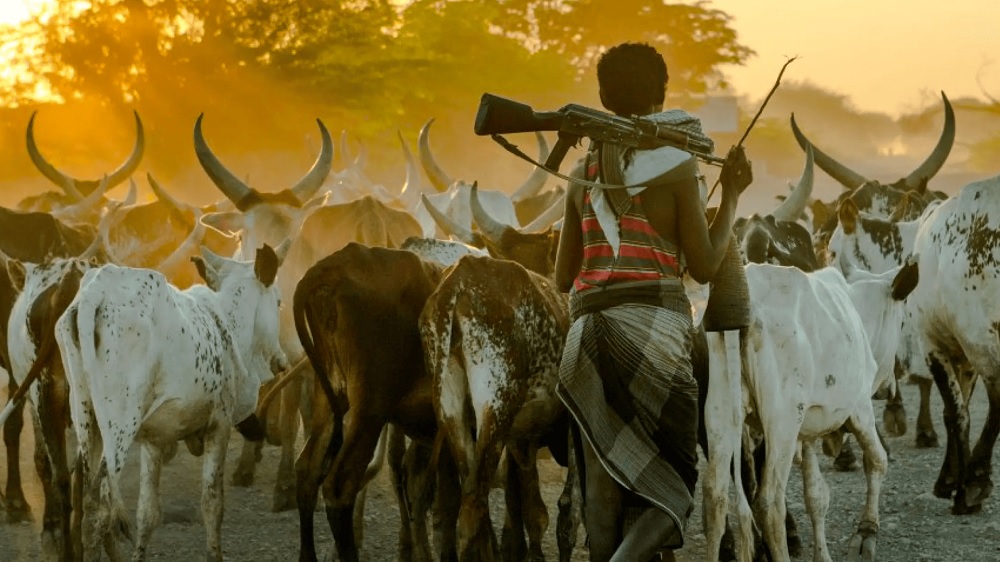
The communities came under simultaneous attacks just a day after the killing of 11 persons at Otobi Community also in Otukpo LGA.
Benue has in the past decade experienced incessant attacks.
Suspected herdsmen have again stepped up violent attacks as no fewer than three communities in the Otukpo Local Government Area (LGA) of Benue State were attacked on Wednesday.
The communities affected during the fresh attacks include Emichi, Odudaje, and Okpamaju all in Otukpo where five persons were killed in February. The communities came under simultaneous attacks just a day after the killing of 11 persons at Otobi Community also in Otukpo LGA.
Local sources confirm that several people may have been feared dead again in the fresh attack.
Wednesday’s attack came hours after Governor Hyacinth Alia confirmed the arrest of three suspected herders in connection with the invasion of Otobi village on Tuesday night.
When contacted, Otukpo LGA Chairman, Maxwell Ogiri, confirmed the attack on the three communities, saying that the attackers stormed the communities at the time when the Commissioner of Police was still at the Ochidoma Palace over the previous day’s attack on Otobi.
He added that three people sustained injury in the attacks on the three communities, leading to women and children abandoning the communities for fear of being killed.
“Only young men were in the communities when the attackers arrived. The prompt response from combined security operatives made the attackers flee and none of them were arrested,” Ogiri stated.
The police spokesperson in the state, Sewuese Anene, was yet to confirm details of the attacks on the three communities.
News
Insecurity: Obi lauds Northern Traditional Ruler’s bold steps
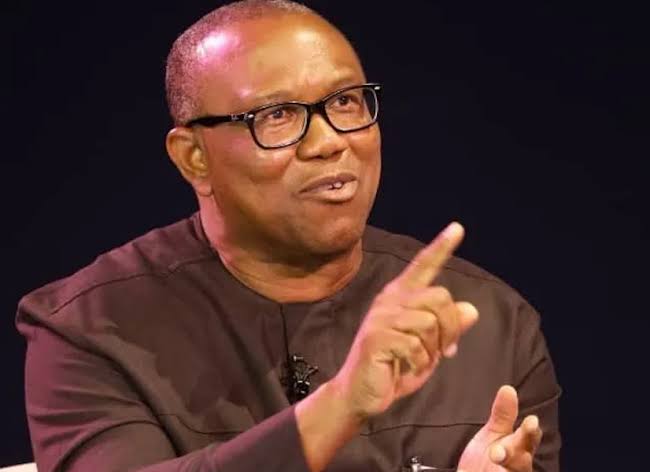
The 2023 Presidential Candidate of the Labour Party, Peter Obi has hailed the Northern Traditional Rulers for taking bold steps on the menacing security challenges in the region and in the country.
Obi, who was reacting to the ‘Enough is Enough’ declaration of the royal fathers on the security situation, said that their courageous steps are needed to find a lasting solution to the menace.
Writing on his X handle, Obi said “I would like to sincerely thank the Northern Traditional Rulers for their courageous and timely emergency declaration of the security situation in the region. I cannot agree less with them that “Enough is Enough” regarding the persistent killings and insecurity plaguing our nation.
“Their collective voice, as reported, underscores the urgent need for decisive action to protect lives and restore peace in our communities.
“I urge governments at all levels to work closely with these royal fathers who are closest to the people at the grassroots. Their commitment to addressing these challenges and offering counsel to regional governors reflects true leadership and a deep concern for the well-being of their communities.
“The stance of the Northern Traditional Rulers serves as a clarion call to all stakeholders. We must unite, irrespective of political affiliations, to implement lasting solutions that address the root causes of our nation’s challenges.
“Let us work together to build a Nigeria where every citizen feels safe, valued, and empowered.
News
Snub story on removal of Rivers Sole Administrator, it’s FAKE-Chief Registrar
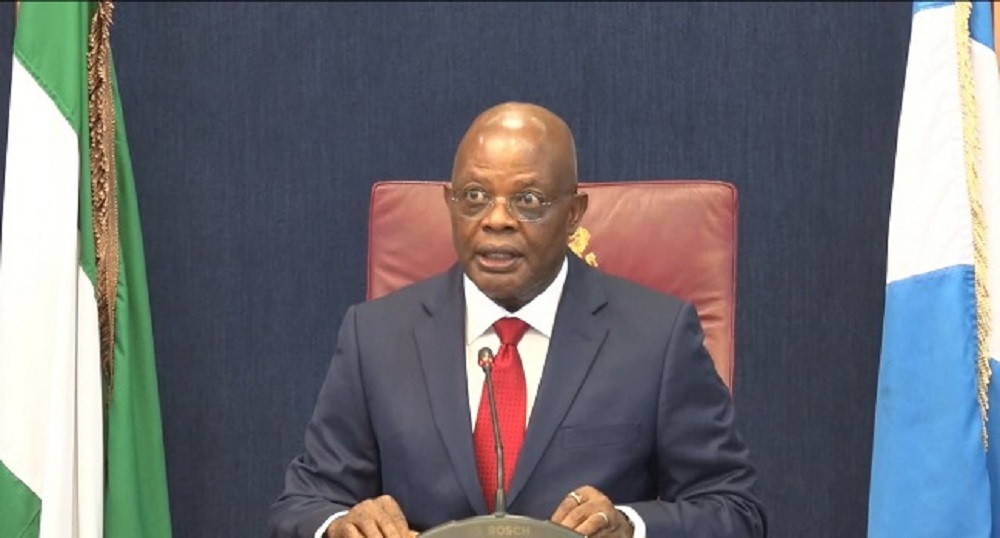
By Emmanuel Agaji
The Rivers State High Court Chief Registrar, David D Thua-Maduenyi has rubbished speculations suggesting that Rivers Sole Administrator has been removed by the state’s High Court.
Naijablitznews reports this was contained in a statement personally signed by the Chief Registrar saying:
“My attention has been drawn to an online news report with the caption “BREAKING
NEWS: Governor Sim Fubara secures Court victory over Wike and Tinubu –
Federal High Court Orders Sole Administrator to vacate Government House”,
authored by one Joy Musa published by 247 ureports on Tuesday, 15th April, 2025.
“Ordinarily, I would not have bothered myself with any refutal, but for the
mischievous mention of the name of Hon. Justice Boma Diepriye which appears
synonymous with Hon. Justice Boma Diepiri of the Rivers State High Court in
paragraph 4 of the report thus:
“Justice Boma Diepriye, who presided over the case, ruled that the
appointment of a sole administrator to oversee the affairs of a state with
a sitting, democratically elected governor is “illegal, null and void…”
“In view of the above, I wish to state as follows:
Hon. Justice Boma Diepiri is not a Judge of the Federal High Court but a
Judge of the Rivers State High Court, and is already on Easter Vacation,
which commenced on Monday, 14th April, 2025.
“For the period of the Easter Vacation, only the vacation Judge is sitting:
and Hon. Justice Boma Diepiri is not the Vacation Judge.
“The mention of the name of Hon. Justice Boma Diepriye which is similar
with Hon. Justice Boma Diepiri of the Rivers State High Court is not only
false, but misleading, and clearly exposes the crass ignorance of the
reporter; as the Federal High Court is different from Rivers State High
Court.
“No State High Court gave any order(s) relating to or concerning the
subject matter as captioned in the online news.
“It is regrettable that some bloggers and online news reporters have traded
professionalism on the altar of pecuniary gains they seek to derive from traffic on
their social media handle and web pages.
“Henceforth, the Judiciary enjoins the general public to seek clarification on any
news report concerning the Court and official of the Court before publication.
“The general public is advised to clearly ignore the false and misleading publication.
-
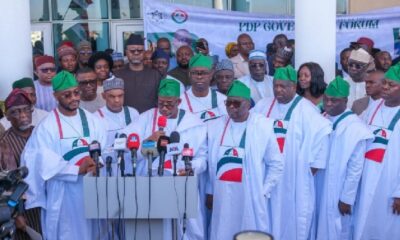
 News21 hours ago
News21 hours agoPDP governors declare support for Tinubu
-
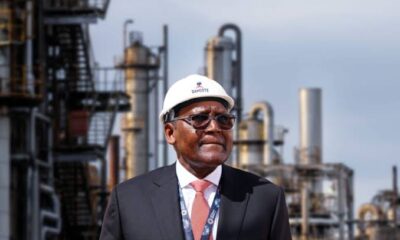
 News22 hours ago
News22 hours agoHope for Nigerians as Dangote refinery slashes petrol price again
-
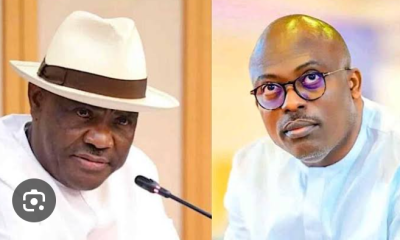
 News24 hours ago
News24 hours agoFubara: How can I forgive somebody who never requested for it– Wike
-

 News22 hours ago
News22 hours agoRivers Emergency Rule: Abbas inaugurates 21-member panel
-
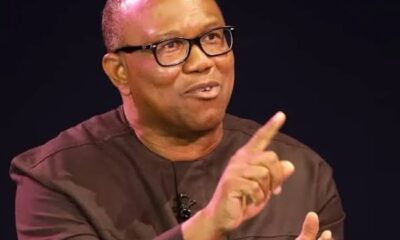
 News23 hours ago
News23 hours agoPeter Obi asks president Tinubu to suspend France trip
-

 News21 hours ago
News21 hours agoN1.3trn CBEX Scam: EFCC caution Nigerians against Ponzi Schemes
-

 News8 hours ago
News8 hours agoFG expresses sympathy for CBEX victims, urges a united effort to combat Ponzi schemes
-
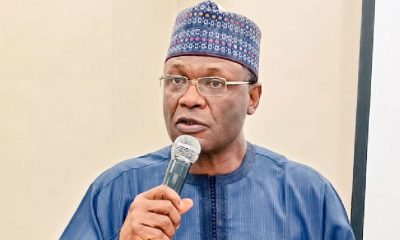
 News23 hours ago
News23 hours agoINEC chair, Yakubu calls on African youths to promote peaceful elections





